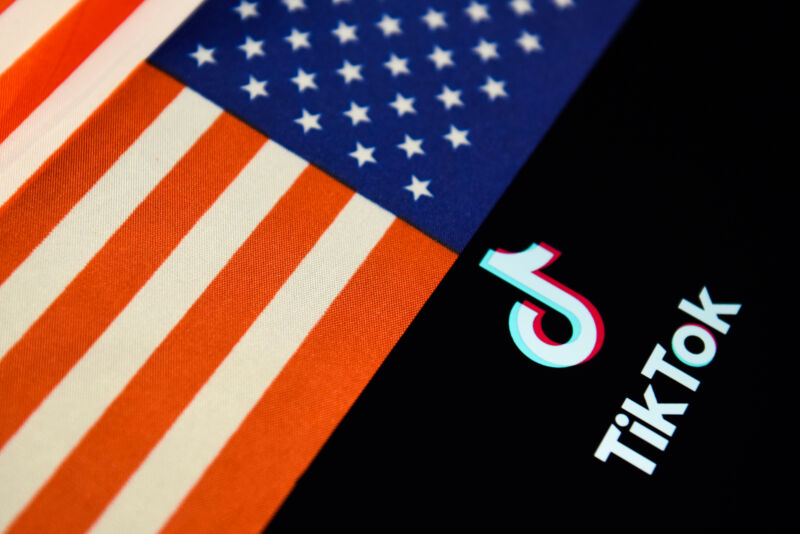
The United States government is currently poised to outlaw TikTok. Little of the evidence that convinced Congress the app may be a national security threat has been shared publicly, in some cases because it remains classified. But one former TikTok employee turned whistleblower, who claims to have driven key news reporting and congressional concerns about the app, has now come forward.
Zen Goziker worked at TikTok as a risk manager, a role that involved protecting the company from external security and reputational threats. In a wrongful termination lawsuit filed against TikTok’s parent company ByteDance in January, he alleges he was fired in February 2022 for refusing “to sign off” on Project Texas, a $1.5 billion program that TikTok designed to assuage US government security concerns by storing American data on servers managed by Oracle.
 Goziker worked at TikTok for only six months. He didn’t hold a senior position inside the company. His lawsuit, and a second one he filed in March against several US government agencies, makes a number of improbable claims. He asserts that he was put under 24-hour surveillance by TikTok and the FBI while working remotely in Mexico. He claims that US attorney general Merrick Garland, director of national intelligence Avril Haines, and other top officials “wickedly instigated” his firing. And he states that the FBI helped the CIA share his private information with foreign governments. The suits do not appear to include evidence for any of these claims.
Goziker worked at TikTok for only six months. He didn’t hold a senior position inside the company. His lawsuit, and a second one he filed in March against several US government agencies, makes a number of improbable claims. He asserts that he was put under 24-hour surveillance by TikTok and the FBI while working remotely in Mexico. He claims that US attorney general Merrick Garland, director of national intelligence Avril Haines, and other top officials “wickedly instigated” his firing. And he states that the FBI helped the CIA share his private information with foreign governments. The suits do not appear to include evidence for any of these claims.
“This lawsuit is full of outrageous claims that lack merit and comes from an individual who significantly exaggerates his role with a company he worked at for merely six months,” TikTok spokesperson Michael Hughes said in a statement.
Yet court records and emails viewed by WIRED suggest that when Goziker raised the alarm about his ex-employer’s links to China, he found a ready audience. After he was fired, Goziker says he began meeting with elected officials, law enforcement agencies, and journalists to allege that, court documents say, he had discovered proof that TikTok’s software could send US data to Toutiao, a ByteDance app in China. That claim directly conflicted with TikTok executives’ assertions that the two companies operated separately.
Goziker says in court filings that what he saw made it necessary to reassess Project Texas. He also alleges that his account of the internal connection to China formed the basis of an influential Washington Post story published in March last year, which said the concerns came from “a former risk manager at TikTok.”
TikTok officials were quoted in that article as saying the allegations were “unfounded,” and that the employee had discovered “nothing more than a naming convention and technical relic.” The Washington Post said it does not comment on sourcing.
“I am free, I am honest, and I am doing this only because I am an American and because USA desperately need help and I cannot keep this truth away from PUBLIC,” Goziker said in an email to WIRED.
His March lawsuit alleging US officials conspired with TikTok to have him fired was filed against Garland, Haines, Secretary of Homeland Security Alejandro Mayorkas, and the agencies they work for.
“Goziker’s main point is that the executives in the American company TikTok Inc. and certain executives from the American federal government have colluded to organize a fraud scheme,” Sean Jiang, Goziker’s lawyer in the case against the US government, told WIRED in an email. The lawsuits do not appear to contain evidence of such a scheme. The Department of Homeland Security and Office of the Director of National Intelligence did not respond to requests for comment. The Department of Justice declined to comment.
Jiang calls the House’s recent passage of a bill that could force ByteDance to sell off TikTok “problematic,” because it “blames ByteDance instead of TikTok Inc for the wrongdoings of the American executives.” He says Goziker would prefer to see TikTok subjected to audits and a new corporate structure.
>>> Read full article>>>
Copyright for syndicated content belongs to the linked Source : Ars Technica – https://arstechnica.com/?p=2015275































